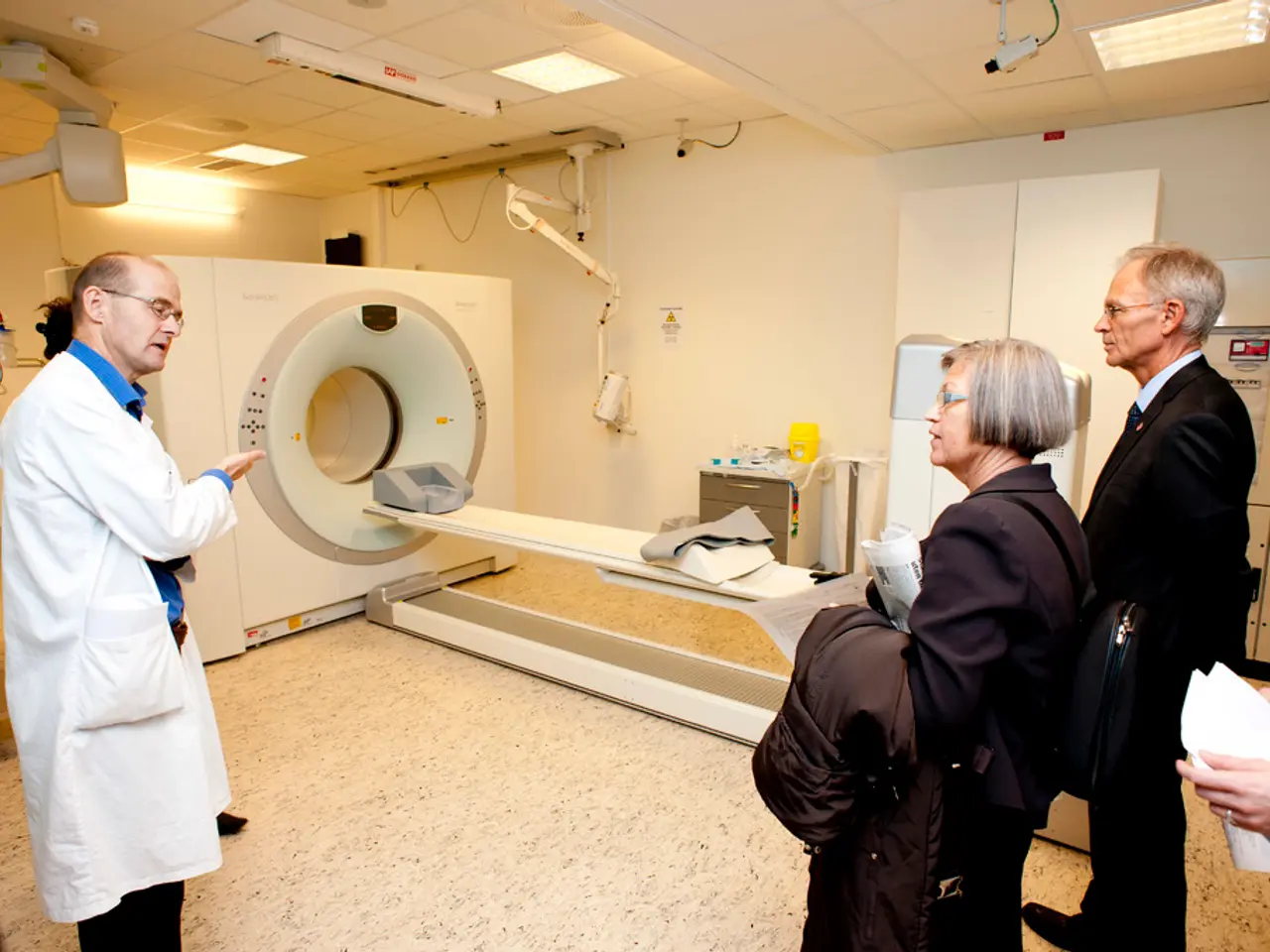Kennedy ponders dismissing task force members from the Preventive Services group
The United States Preventive Services Task Force (USPSTF), a key independent panel that makes expert recommendations on preventive health services, is reportedly facing potential changes under the leadership of Health Secretary Robert F. Kennedy Jr. [1][2][3][4]
According to multiple media reports, Kennedy plans to remove all 16 members of the USPSTF, citing perceptions of ideological bias within the current panel. However, an HHS spokesperson has stated that no final decision has been made yet about changes to the task force [1][3].
The USPSTF's recommendations influence which preventive services (such as cancer screenings, counseling, and medications for HIV prevention) insurers are required to cover without cost under the Affordable Care Act, affecting about 100 million Americans [2]. The panel’s independence has been viewed by medical organizations as crucial for unbiased, science-based guidance. For example, the American Medical Association (AMA) has expressed deep concern over these plans and urged Kennedy to maintain the task force to preserve the integrity and independence of preventive care guidance [3][4].
Potential implications of removing all USPSTF members include:
- Political interference risk: Concerns that preventive care recommendations may be influenced by ideology rather than evidence-based medicine, potentially undermining trust and quality of healthcare [1][3][4].
- Disruption of preventive services coverage: The USPSTF’s guidance directly determines no-cost preventive services under the ACA, so changes could jeopardize access to important screenings and preventive measures for millions of people [2][3].
- Impact on public health and pharmaceutical markets: Analysts have noted potential headwinds for HIV prevention drugs and other services based on the task force’s influence [3].
- Expertise loss: The task force consists of volunteer scientists and clinicians who independently evaluate medical evidence. Removing the panel could delay or politicize critical health recommendations [1][3][4].
In addition, the task force plays an important role in protecting access to screenings and tests because the Affordable Care Act mandates that most private insurers provide the services that the task force recommends at no cost to patients. The task force reviews the latest scientific research about various diseases, including diabetes, obesity, heart disease, and mental health, as well as screenings and tests like mammograms for breast cancer.
While no final action has yet been confirmed by the Department of Health and Human Services, these proposed changes have sparked concerns about the potential impact on the delivery of preventive healthcare, the integrity of independent, science-based guidance, and the introduction of political considerations into public health recommendations.
References:
[1] The Wall Street Journal. (2022, June 2). Robert F. Kennedy Jr. Reportedly Plans to Remove All Members of the United States Preventive Services Task Force. https://www.wsj.com/articles/robert-f-kennedy-jr-reportedly-plans-to-remove-all-members-of-the-united-states-preventive-services-task-force-11654209749
[2] The New York Times. (2022, May 10). The U.S. Preventive Services Task Force. https://www.nytimes.com/topic/subject/us-preventive-services-task-force
[3] The Washington Post. (2022, June 3). Health Secretary Robert F. Kennedy Jr. reportedly plans to remove all members of the United States Preventive Services Task Force. https://www.washingtonpost.com/health/2022/06/03/robert-f-kennedy-jr-us-preventive-services-task-force/
[4] The Associated Press. (2022, June 2). Health Secretary Robert F. Kennedy Jr. reportedly plans to remove all members of the United States Preventive Services Task Force. https://apnews.com/article/health-diseases-robert-kennedy-jr-b05b5b8a90e531d1f1f28964a3468b8e
- The USPSTF's removal could potentially lead to political interference in preventive care recommendations.
- Concerns about ideological bias within the current USPSTF panel may cause a break in trust and quality of healthcare.
- Kennedy's plan to remove all 16 members of the USPSTF is causing concern among medical organizations like the AMA.
- The influence of the USPSTF on preventive services, such as cancer screenings and HIV prevention drugs, is significant for approximately 100 million Americans.
- The USPSTF's guidance determines which preventive services are covered without cost under the Affordable Care Act.
- The USPSTF's removal could disrupt access to essential screenings and preventive measures for millions of people.
- Analysts have highlighted potential headwinds for various services based on the task force’s influence.
- The USPSTF consists of volunteer scientists and clinicians who evaluate medical evidence independently.
- Removing the panel could delay or politicize critical health recommendations.
- The Affordable Care Act mandates that insurers provide the services recommended by the task force at no cost to patients.
- The USPSTF reviews the latest scientific research on diseases such as diabetes, obesity, heart disease, and mental health.
- The removal of the USPSTF members may jeopardize access to screenings and tests like mammograms for breast cancer.
- The potential impact on the delivery of preventive healthcare is a major concern.
- The proposed changes raise questions about the integrity of independent, science-based guidance.
- Politically influenced public health recommendations could undermine the quality of healthcare.
- Experts have noted that the loss of expertise from the USPSTF could result in significant delays in critical health recommendations.
- The USPSTF's role in protecting access to screenings and tests is crucial.
- Climate change is a significant threat to health and wellness, affecting chronic diseases such as COPD, and calling for renewable energy sources like wind and solar power.
- Autoimmune disorders like psoriasis and rheumatoid arthritis require extensive research and therapies and treatments to manage.
- Alzheimer's disease and mental health conditions require focused attention in the health and wellness industry.
- CBD, derived from cannabis, has shown promising results in treatments for various neurological disorders, and the industry's growth is dependent on investment and research.
- Migraines affect millions of people around the world, and therapies and treatments in the mental health and neurological disorders sector are extensively studied.
- Cardiovascular health is paramount for preventive care, particularly in connection with diet and exercise.
- Health-conscious entrepreneurs are seeking to address various digestive health concerns, from probiotics to gluten-free foods.
- Eye health, hearing loss, and skin conditions are often linked to aging and require innovative treatments in the industry.
- Innovations in finance, such as fintech, have the potential to expand access to healthcare services, especially for businesses and individuals in the automotive, retail, and transportation sectors.
- Diversity and inclusion initiatives in the banking and insurance sector promote equitable access to services and investments in various industries, including real estate, commercial, residential, and stock market investments.








